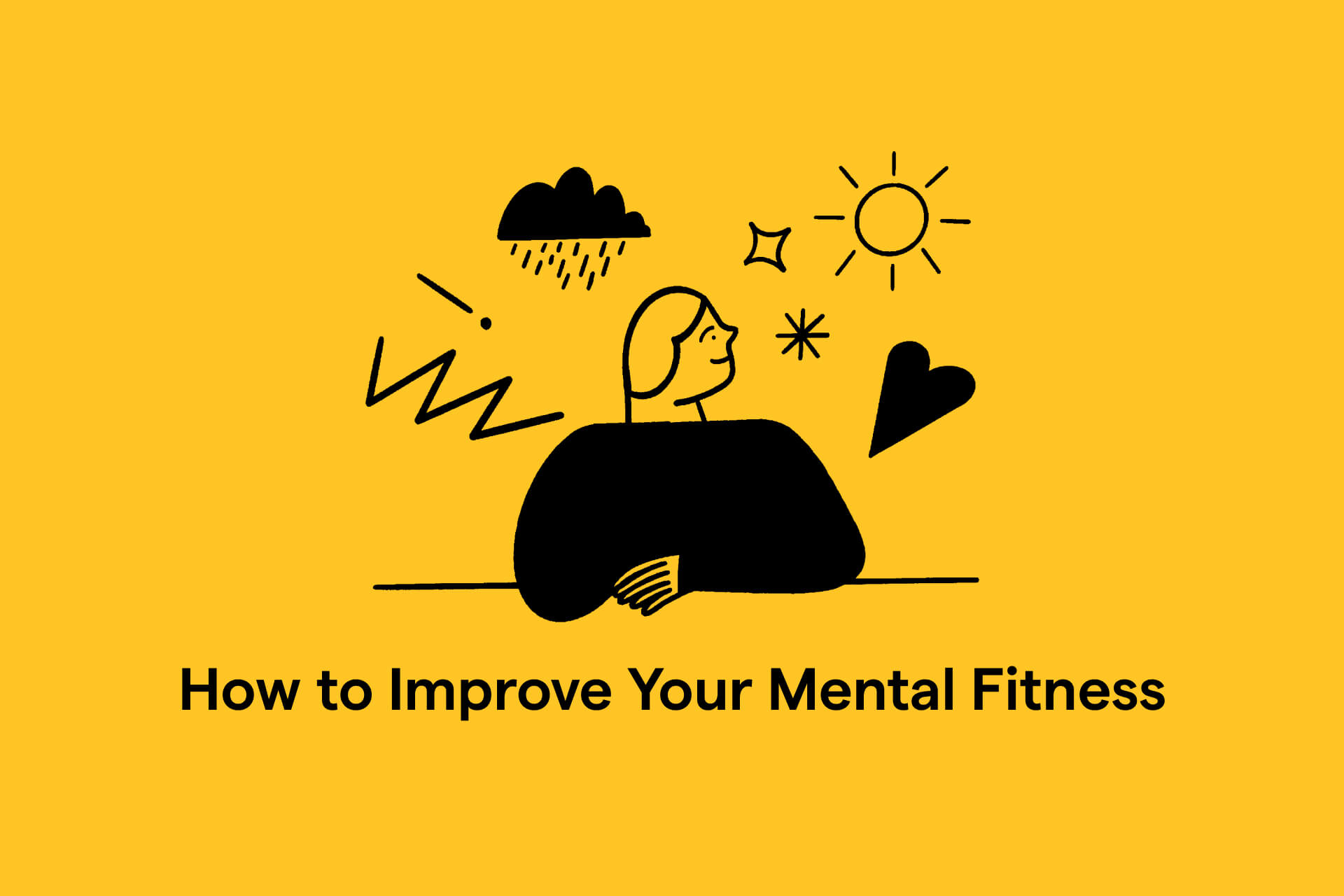
Individual
A self-facilitated program to boost your mental fitness for personal and professional growth
This website will offer limited functionality in this browser. We only support the recent versions of major browsers like Chrome, Firefox, Safari, and Edge.

Select the experience that fits your needs

A self-facilitated program to boost your mental fitness for personal and professional growth

A self-facilitated mental fitness program with exclusive pricing for 2 to 25 individuals

Explore coach-led mental fitness programs with workshops tailored to your organization
Emotional Intelligence

Mental fitness is the key to unleashing your true potential at work and in life. In today’s workplace climate, where burnout, uncertainty, and mental health challenges abound, mental fitness is critical.
What is mental fitness, why is it so important, and how can you develop it in the workplace and beyond?
Mental fitness is your state of mental well-being — it represents your ability to make decisions, your awareness, and how you respond to life’s challenges. It involves developing core psychological resources and becoming aware of how you think, behave, and feel.
If you’re not physically fit, you’ll feel physical stress as you climb a steep hill. If you’re not mentally fit, you’ll feel mental stress, such as anxiety, frustration, or unhappiness, when faced with life’s challenges. Conversely, when you’re mentally fit, you lean into challenges and can navigate change and stress, no matter what day-to-day life presents.
Mental health and mental fitness are related but distinct concepts. Mental health refers to a person’s overall psychological and emotional well-being. It includes their ability to cope with stress, manage their emotions, and maintain healthy relationships.
On the other hand, mental fitness refers to a person’s ability to use their cognitive and emotional resources to handle the challenges of daily life. It is similar to physical fitness, which is the ability to use one’s physical resources to perform physical tasks. Mental fitness involves mindfulness, meditation, positive thinking, and self-reflection to help improve mental well-being. Being mentally fit can help you cope with certain mental health challenges.
Mental health is the absence of mental illness, whereas mental fitness is the presence of positive mental habits regardless of whether you have a mental illness or not. Mental health is a state of mind, while mental fitness is the strength of mind that allows individuals to handle the ups and downs of life with grace, ease, and confidence.
The measure of your mental fitness is called PQ (Positive Intelligence® Quotient). Your PQ is a ratio of how often you react to negative emotions such as stress, guilt, shame, regret, and anger (caused by your Saboteurs) versus how often you respond to positive emotions such as empathy, curiosity, gratitude, and calm (generated by your Sage).
There are three core elements at the root of mental fitness:
1. Catching your Saboteurs
2. Energizing your Sage Brain
3. Using your Sage Powers
To begin improving your mental fitness, you must first identify the Saboteurs generating your negative emotions. Then, you can develop the ability to catch and discredit the Saboteurs. Next, you must boost your ability to command your mind to shift from negative to positive, and lastly, you must strengthen your positive brain muscles to tap into their powers fully.
1. Catch your Saboteurs
The Saboteurs are automatic and habitual mind patterns, each with its voice, beliefs, and assumptions that work against your best interests. They come in ten varieties, with names like Controller, Victim, Stickler, Pleaser, and Avoider. Take the free Saboteur Assessment to find out which Saboteurs are holding you back so you can begin to intercept their limiting beliefs.
2. Energize your Sage Brain
Your Sage’s great wisdom and strength are rooted in its perspective: any problem you face can be a gift and opportunity. Your Saboteurs mock that perspective and cause you instead to feel anxious, frustrated, disappointed, stressed, or guilty over “bad” outcomes.
Quieting the Saboteur region of your brain and amplifying the Sage region gives you greater access to your valuable Sage Powers. These powers allow you to meet any work or life challenge without the stress and anxiety caused by Saboteurs.
Simple daily exercises help you boost your ability to command your mind to quiet the Saboteur region and amplify the Sage region. Visit the PQ Gym to try a few of these exercises.
3. Use your Sage Powers
Mental fitness gives rise to the Sage perspective and its powers. When you are mentally fit, your brain focuses on thriving rather than surviving. The Sage part of your brain lives in the middle prefrontal cortex, “empathy circuitry,” and parts of the right brain.
Your Sage accesses five positive powers. When you are mentally fit, you learn to boost all five powers for peak performance and know when to use which power. Take the free PQ Score Assessment to track your mental fitness and note your progress.
Maintaining a mentally fit workforce is essential for productivity, employee satisfaction, and well-being.
Mental fitness encompasses psychological well-being, emotional resilience, and the ability to cope with work-related stressors, and it plays a crucial role in an employee’s ability to perform optimally and maintain a healthy work-life balance.
A vast body of psychological research shows the importance of supporting mental health and mental fitness in the workplace. Organizations can build stronger foundations with practical resources — from mental health coverage and flexible work policies to appropriate employee training.
Purposeful support can spark profound value across an organization, enabling employees to unlock their potential as individuals and as part of more dynamic, engaged, and productive teams.
By prioritizing mental fitness, organizations can create a supportive and inclusive work environment that allows employees to thrive personally and professionally.
As human beings, we all have things we need to work on. Mental fitness helps all employees become open to that feedback rather than shielding themselves from it.
The PQ Program from Positive Intelligence provides the tools and operating system to thrive in high-pressure environments.
The trusted, science-based system starts with a seven-week app-guided program to strengthen mental fitness. Offerings include daily practice, weekly video sessions, progress measurements, coaching, and community support — all designed to maximize performance and well-being.
Research shows that in just seven weeks of mental fitness practice, positive neural pathways grow, negative ones diminish, and participants elevate competencies in 17 of the 18 emotional intelligence (EQ) categories.
The results of the PQ Program improve both performance and well-being among participants*:
92% increase teamwork and collaboration
91% manage stress better
90% optimize mental and emotional energy
85% increase happiness
84% enhance conflict management
83% improve self-confidence
*Based on survey results from a cohort of >2000 PQ Program participants after seven weeks of mental fitness training
Improving your performance doesn’t have to come at the cost of your well-being. By building mental fitness, you can mitigate stress and anxiety and lessen your risk of burnout. When you are mentally fit, you’re also better able to manage the mental health challenges you may face.
For organizations, strengthening the mental fitness of individuals and teams not only boosts performance, teamwork, and problem-solving but also improves the overall well-being of your most important asset — your people.

